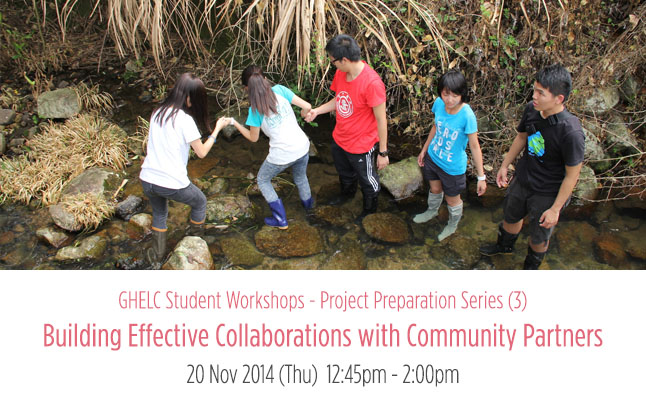Experiential Learning in Comparative Literature
It is of general impression that Comparative Literature is all about academic discussion of various linguistic and cultural theories within the classroom. However, at the Department of Comparative Literature of HKU, innovations have been made to ensure that learning can be achieved outside the classroom. In fact, experiential learning has always been part of a very distinctive and creative feature of the department. In this connection, two seminars on experiential learning in comparative literature, hosted by Centre for the Enhancement of Teaching and Learning and Gallant Ho Experiential Learning Centre respectively, were held at the HKU campus in the past two weeks.
Internship program: Learning begins from the gap between theory and the real world
According to Dr. Jason Ho, Lecturer of the Department of Comparative Literature, students’ learning experience can be enriched through a variety of experiential learning components in various courses offered by the department. For example: multi‐media creative project, “meeting the artist” activity, fieldwork and others. He recalled in the early 2010s, the department started to turn some of the semester-end assignments into experiential projects, which required interactions and application of theories in the real life. And eventually in 2012, with the support of the teaching development grant he and Dr. Esther Yau set up and coordinated the department internship program that continues to run until today.
One may wonder what kind of experiential learning components can be found in the internship program at the Department of Comparative Literature. The rationale behind, as explained by Dr. Ho, is to allow the students to relate their internship experience with classroom learning. Currently, they are focusing on three sectors: publishing, film production and cultural NGOs. Dr. Ho said that he would like the students to examine to what extent they can or cannot apply what they learn in the classroom to the real world and in most cases, learning arises from those situations where classroom theory cannot be applied. And it is through the gap between theory and the real world that new knowledge be created.
Since its establishment in 2012, the program has placed more than 100 students to about 20 partner organizations. Dr. Ho is in particular proud that one tenth of the students who completed their internship, were able to receive full time offer upon their graduation. The good news is now that the internship program has established its reputation; organizations will take the initiative to approach him for collaboration opportunities. Looking forward, Dr. Ho hopes to increase the variety of internship positions offered to the students.
“I think it is a valuable chance and it is eye‐opening. Everyone knows that I have an internship asks me how come there would be internship program for comparative literature students […] It is really nice for us comparative literature students to work to see how the high‐sounding academic terms can be applied in reality.” (Student in the Internship program-Chan Chor See)
Independent Documentaries: Theory and Practice
Dr. Esther Yau, Associate Professor of the Department of Comparative Literature,acted as the coordinator of a new course “Independent Documentaries, Theory and Practice” in the academic year of 2013-14. It was a unique course specialized in documentaries making. The course was divided into two modules with the first module covering the knowledge, techniques and ethics of documentary studies, followed by workshops tackling the techniques of camera work, field observation and interview skills. The class of 30 students then formed groups of three to conduct field research on the subject and finally carried out the actual shooting of the documentaries.
Students were able to pick a topic on their own. The topics chosen included the Pokfulam village, a restaurant in Yuen Long, a shelter for abandoned dogs and the story of a transgender person. Students’ feedback was mostly positive with 3-4 students becoming volunteers and interns with Visible Record, a non-distributor of documentaries, and at the 2014 Chinese –language Documentary Festival in Hong Kong. One student is glad now that she has her own documentary in her portfolio, in addition to her ordinary course work such as essays and poetry writings as a student of Comparative Literature.
Public screening of students’ documentaries in Pokfulam village in May 2014.
One of Dr. Esther Yau’s emphases on experiential learning is the element of community building by giving and receiving, in addition to the experiential learning cycle where learning is enriched through the reflection of theory application into real life. She was deeply touched when the students held an open-air public screening of their documentary at the Pokfulam village, responding to audience’s comments and finally presented the copy of the documentary to the villagers as a token of appreciation. To Dr. Esther Yau, this also instills the students’ sense of social responsibility and willingness to contribute to the society on top of their academic learning.
(For the full presentation of Dr. Esther Yau, click here)
News Update
 |
GHELC Student Workshops – Project Preparation Series
|

